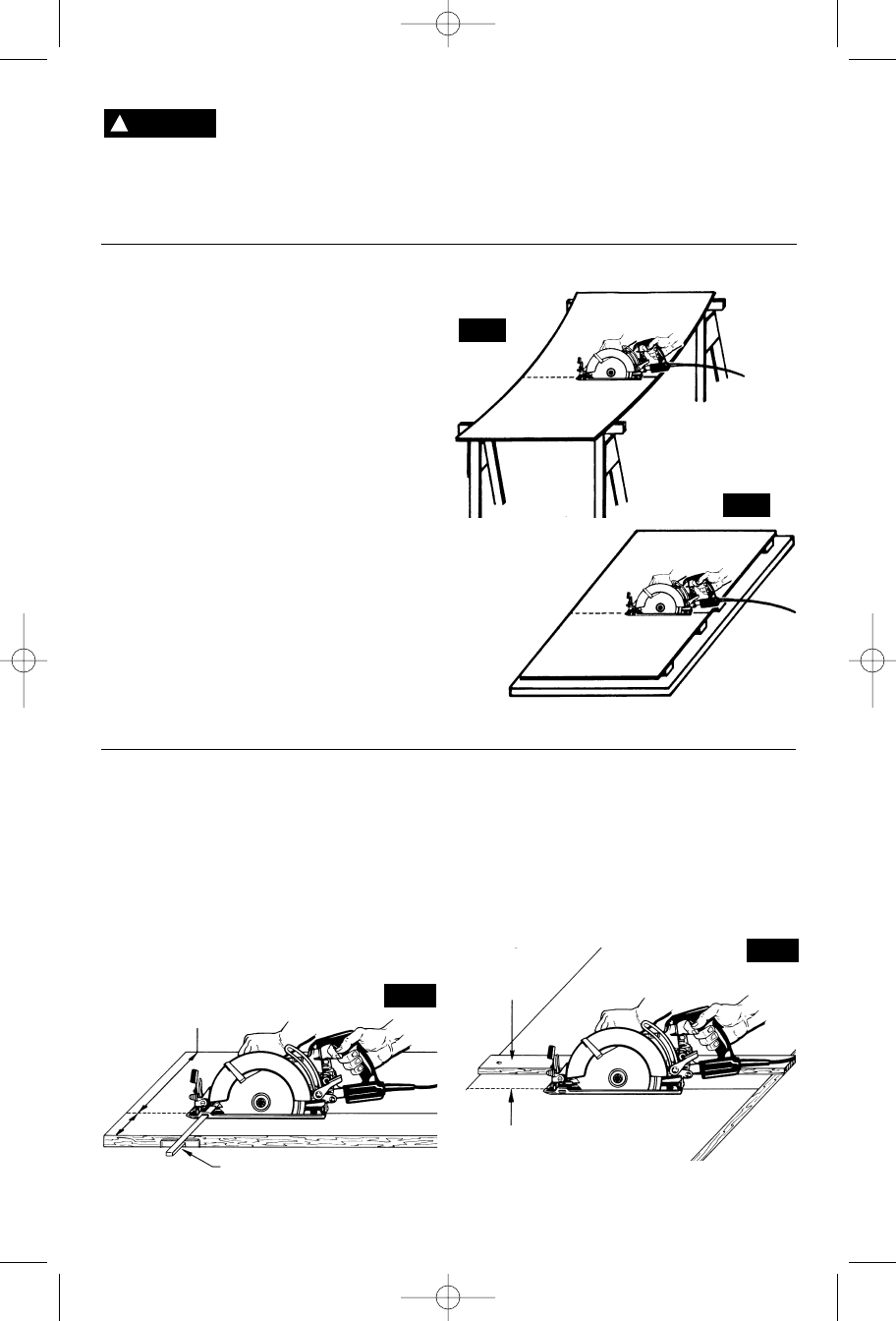
Allow blade to come to a
complete stop before lifting
the saw from cut. Also, never pull the saw
backward since blade will climb out of the
material and KICKBACK will occur.
Turn saw around and finish the cut in the normal
manner, sawing forward. If corners of your
pocket cut are not completely cut through, use a
jigsaw or hand saw to finish the corners.
-11-
RIP CUTS
The combination blade provided with your saw
is for both cross cuts and rip cuts. Ripping is
cutting lengthwise with the grain of the wood.
Rip cuts are easy to do with a rip fence
(Fig. 10). Rip Fence is available as an
accessory (not included). To attach fence, insert
fence through slots in foot to desired width as
shown and secure with the wing nut (not
included).
RIP BOARD GUIDE
When rip cutting large sheets, the rip fence
may not allow the desired width of cut. Clamp
or nail a straight piece of 1" (25 mm) lumber to
the sheet as a guide (Fig. 11). Use the right
side of the foot against the board guide.
FIG. 10
FIG. 11
RIP FENCE
DESIRED
WIDTH OF CUT
DESIRED
LINE
OF CUT
RIP
BOARD
GUIDE
CUTTING LARGE SHEETS
Large sheets and long boards sag or bend,
depending on support. If you attempt to cut
without leveling and properly supporting the
piece, the blade will tend to bind, causing KICK-
BACK and extra load on the motor (Fig. 8).
Support the panel or board close to the cut, as
shown in (Fig. 9). Be sure to set the depth of the
cut so that you cut through the sheet or board
only and not the table or work bench. The two-
by-fours used to raise and support the work
should be positioned so that the broadest sides
support the work and rest on the table or bench.
Do not support the work with the narrow sides
as this is an unsteady arrangement. If the sheet
or board to be cut is too large for a table or work
bench, use the supporting two-by-fours on the
floor and secure.
RIGHT
FIG. 8
WRONG
FIG. 9
!
WARNING
SM 1619X01288 01-06 1/23/06 8:50 AM Page 11


















